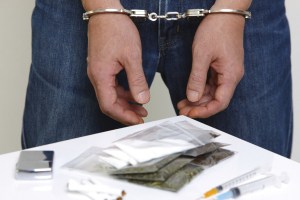Tennessee Drug Laws
 In spite of the fact that using, possessing, or selling illegal drugs is a criminal offense in Tennessee that carries stiff penalties and results in other negative consequences, many people still use them. Whether you believe the laws interfere with private choices and individual liberty, are unfair, not needed, outdated, or unjust, or should be repealed, those beliefs are not defenses against drug charges.
In spite of the fact that using, possessing, or selling illegal drugs is a criminal offense in Tennessee that carries stiff penalties and results in other negative consequences, many people still use them. Whether you believe the laws interfere with private choices and individual liberty, are unfair, not needed, outdated, or unjust, or should be repealed, those beliefs are not defenses against drug charges.
Know that generally, there are five basic drug offenses under Tennessee law: simple possession, possession with intent, sale of illegal drugs, drug trafficking and conspiracy, and drug manufacturing. Remember this: Factors, such as criminal history and the amount of the substance, govern the severity, length, and number of penalties for committing a drug crime.
Simple possession is usually, but not always, a relatively minor offense in Tennessee and involves individuals who have and use said controlled substance for casual or recreational purposes; you can have said controlled substance physically on you, in your house, or in your car in order for authorities to charge you. If you have more than a certain amount, depending on the illegal drug, which the Tennessee legislature classified as the amount for recreational use, then an individual may face a possession with intent to sell or distribute charge. If law enforcement finds scales, bags or containers, or cash, the charges increase. Know this: A relatively small amount of marijuana, for instance, can result in a felony charge.
In Tennessee, selling illegal drugs is a felony, the severity of which depends on the drug used or sold, location of the sale or purchase, and number of previous criminal charges. Drug trafficking and conspiracy refers to two or more individuals jointly producing, distributing, transporting, importing, or selling controlled substances. Authorities may merge an individual case with other cases and turn them into a huge mega-case.
Drug manufacturing is the actual cultivation, making, or processing of a controlled substance, regardless of whether the cultivation process includes natural growth or synthetic creation, and regardless of whether the drug was cultivated, made, or processed for the individual’s own use. Producing even small amounts of drugs may well result in jail time with a minimum of one year.
Moreover, courts often require those convicted of drug crimes to attend drug education classes, perform community service, pay fines, and possibly lose or have a driver’s license suspended. On top of those sanctions, law enforcement may seize any property used in connection with illegal drugs, including vehicles, bank accounts, smartphones, computers, etc.
If convicted of a felony drug offense, an individual loses his or her right to vote and possess firearms, and employment challenges almost always follow.
Law enforcement does not hesitate to charge individuals with drug and related offenses.
So, if you are charged with a drug crime, you have rights. For more information, contact Attorney Perry A. Craft.

Perry A. Craft has dedicated his life to helping people in need. He has tried, settled, or resolved numerous civil and criminal cases in State and Federal courts, and has represented teachers and administrators before school boards, administrative judges, and the state Board of Education. Learn more about Attorney Craft.
